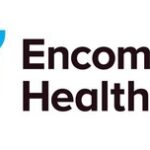 As a member of Congress for 20 years, including four years as Speaker of the House, Newt Gingrich was committed to improving health care in the United States. And that advocacy has not waned in his role with the Center for Health Transformation as Gingrich draws on that experience, and other leadership qualities, to create a health system that truly meets the needs of the people it serves.
As a member of Congress for 20 years, including four years as Speaker of the House, Newt Gingrich was committed to improving health care in the United States. And that advocacy has not waned in his role with the Center for Health Transformation as Gingrich draws on that experience, and other leadership qualities, to create a health system that truly meets the needs of the people it serves.
“The biggest difference between the public and private sectors is that where I am now allows much more of a focus on solutions and the big picture,” Gingrich, founder of the Washington, D.C.-based Center for Health Transformation, said. “In Congress, there is the tendency for members to get caught up in solving the immediate problem and trying to make the current model work. There is less opportunity to focus on the long-term solutions or on the system that ought to be rather than the one that is.”
From that perspective, working in the private sector is “actually easier,” Gingrich said.
“However, through my work in Congress, I learned a lot about how the system works, what it takes to change large systems, how to create policies that can drive transformation and how to build coalitions to get things done,” he said.
All of those skills are applied daily at the Center for Health Transformation and are part of “what we teach others in our training sessions and through our publications,” Gingrich said. Much of that will be included in The Art of Transformation, a book Gingrich is currently writing with Nancy Desmond, CEO of the Center.
Chances are part of the book will focus on what Gingrich feels are the three most important goals for changing the way health care is delivered in the United States.
“What we need to recognize is that our health system is broken, and cannot be fixed with small, incremental changes made only at the margins,” he said. “We have inherited an inefficient, disconnected, paper-based and bureaucratic 20th Century health system which cannot meet the demands of the 21st century.
“At the Center for Health Transformation, we believe that in order for our health system to satisfy the demands of the 21st Century, the health sector must confront old systemic biases, such as reliance entirely on third-party systems and paper records,” he continued. “The future we envision is a 21st Century
Intelligent Health System that saves lives and saves money for all Americans. The system should be knowledge-intense and electronically-based, and structured so that innovation diffusion is rapid and individuals are able to make choices based on accurate and readily available information. So that we effectively confront the challenges of the future (an aging population, higher incidence of diabetes and obesity, etc), the 21st Century American health system must be outcomes-based, values-driven, and focused on the individual, with special attention to prevention and optimal health management.” In order to get to that point, Gingrich emphasized, there are three things which need to happen right away:
Transparency of health price and quality information.
“Americans have the fundamental right to know the cost and quality of the health products and services they consume,” Gingrich said. “There is no other sector of our economy with so little price and quality available as the $2 trillion healthcare industry. The American people clearly want this to change. According to AHIP (America’s Health Insurance Plans), 93 percent of Americans believe they have the right to know cost and quality information about their healthcare providers. By bringing market forces to bear on the health sector, we will drive down costs while improving quality.”
Widespread adoption of interoperable Health Information Technology systems. “It is this simple: Paper kills,” Gingrich said. “Nearly 100,000 Americans are still dying each year as a result of medical errors that could have been prevented. Millions of paper records were lost after Hurricane Katrina, leaving displaced Gulf Coast victims without access to their health information at the very moment they needed it most. As a nation we must never allow this to happen again. We have the technology now to bring everyone into the electronic age, and we must do it soon, before the entire system collapses under the stress of a major natural (or engineered) disaster.”
Optimal Health Management. “The health system needs to transform from an acute-care model to one based on long-term goals of prevention, wellness, nutrition, and active, healthy aging,” Gingrich said. “This concept encompasses the principle of taking responsibility for one’s health, and we support incentivizing people with benefits such as tax credits and lower premiums as a reward for those individuals who chose to make an effort to keep themselves healthy (and reduced their burden on the health system at large).”
Gingrich was asked about a growing theory among many in the industry that the problem with health care is that there is enough money for hospitals and health systems but it is being spent in the wrong way i.e., physicians owning imaging technology which encourages self/excess referrals, repeat testing because results are not shared, and other wastes.
“Electronic health records would solve the problem,” he said. “With electronic health records the duplication of tests would drop dramatically.”
He also said the “greatest wastes” in healthcare spending are:
Litigation costs (three times those in Great Britain) and the over-testing and defensive medicine it leads to;
Wasteful administrative overhead. (The inefficiency of the 500-plus insurance forms and the games insurance companies play to avoid paying doctors);
The cost of paper versus information technology. (The Henry Ford Health System in Detroit believes it saved $3 million the first year on a $1 million investment in electronic prescribing, for example);
The focus on expensive acute care rather than wellness, prevention, early testing and chronic illness management (which Pfizer is proving in Florida can save millions of dollars and thousands of lives);
The absence of effective convenient information and the establishment of a patient right to know for quality and costs (see www.myfloridarx.gov and www.floridacomparecare.gov as pioneering steps in this direction);
The absence of patient centered comprehensive coordinated care as a system for helping people with multiple problems (co-morbidities).
“With these changes there would be more than enough money in the current system,” Gingrich said.
Innovations developed by the Health Information Management Systems Society (HIMSS) in terms of information technology, electronic health records (EHR) and the sharing of appropriate clinical information between providers draw widespread attention are very important in Gingrich’s health care transformation goals.
“I cannot stress it enough paper kills,” he said. “It is an absolute imperative that the U.S. health system comes online and catches up with the rest of our society.
“Health information technology’s tremendous potential to saves lives and saves money is real, and it is happening all around us,” Gingrich continued. “It has been proven in places like the Indiana Heart
Hospital in Indianapolis, where they reduced medication errors by 85 percent after building a new facility that is totally paperless. At the same time, implementation of health information technology helped the hospital to reduce physician administrative time by 30 percent. Now doctors can now spend more quality time with their patients.”
Another example, he said, is the Central Utah Multi-Specialty Clinic, the largest multi-speciality group in the state of Utah. They implemented an electronic medical record provided by Allscripts Healthcare Solutions. During a one-year study, Gingrich noted, the clinic experienced spending reductions/revenue increases amounting to more than $952,000 over the prior year, and they anticipate savings of about $14 million over the next five years.
Scores of other examples exist,” Gingrich said, adding that people interested in seeing the real results of such efforts should visit the Center for Health Transformation’s “Transforming Examples” page ( www.healthtransformation.net/transforming_examples/Transforming_Examples_Resource_Center/ ). “Investment in interoperable health IT systems is essential to the creation of a 21st Century Intelligent Health System,” Gingrich said. “To get there, I recommend that the federal government dedicate 1 percent of all spending to health IT. Ultimately, I would like to see us create a national health information infrastructure for coordinating medical care that could also serve as a virtual public health network to aid the nation during natural disease outbreaks and deliberate biological or chemical attacks.” Addressing the issue of the “seamless, national health care information network” and how it will enhance/advance the delivery of health care, Gingrich said: “It is the stunning lack of connectivity of our paper-based health system that puts us at risk on a daily basis.”
“Paper records locked in a file cabinet do absolutely no good for a patient unconscious in the emergency room without identification, or the people of New Orleans whose paper records were destroyed during Katrina,” he said. “We believe that harnessing innovation and technology in health care will help us to confront major threats and challenges to maintaining the health of the U.S. population. Sustainability of the health system is a matter of the utmost national security. With the looming threat of a potential avian flu pandemic or other natural or engineered biological disaster we must reinvent our health system so it can withstand multiple crises simultaneously. As it operates now, the system will not be able to cope with a major public health crisis or disease outbreak, as it cannot sufficiently monitor the situation or alert officials to carry out vital action.”
Gingrich said the Center for Health Transformation envisions building a seamless national health information network (complete with functions for de-personalized and data-mined information) connected to a complementary personal health knowledge system that begins with the building block of an electronic health record. This structure, he said, will allow people to “take ownership of their own health, as they are able to better access information and help manage their health decisions.”
“Connectivity and real-time data sharing between all sectors of the health system is key,” he said. “In order to function properly, the U.S. health system must address the needs of individuals, doctors, hospitals and the entire extended healthcare community, including long-term care facilities, nursing homes, pharmacies and home health agents.”
The health sector needs to draw upon the advances in technology and communications which have helped drive down the costs of products and services in other sectors of the economy, such as with airline tickets, cell phones with cameras, and worldwide mail delivery services, Gingrich said.
“To fix the American health system, health and financial knowledge must be available in the most accurate, least expensive and most convenient manner possible,” he said. “In the 21st Century Intelligent Health System, individuals will have accurate, timely knowledge of their health needs, access to the best information about how to maintain their health, knowledge of where to go for care, and assurance that their doctors will use ‘best practices,’ based on the most recent understanding of outcomes-based medicine. The added benefit of every American getting an EHR is that we will be able to create a national database of anonymous information that will function as a continuous source of new ideas and breakthroughs.”
Hospitals and health systems have a large responsibility to reach the goals of reducing medical errors and costs in health care, Gingrich said, rather than taking the route of laying the blame for their problems on the federal and state governments.
“The continued high incidence of medical errors, and consequently, high costs in health care, is largely a function of our health system lacking three vital elements: transparency, health IT and tort reform,” he said. “The role of hospitals specifically in the quest to make health care safer and more affordable is to continually work to implement best practices. Health IT can play a major part in accelerating the process of learning from medical mistakes and also preventing errors though such proven solutions as e-prescribing, computerized physician order entry, bar coding and others. If transparency is regarded as a worthy goal and hospitals and health systems post their prices (and related quality measures), those which successfully complete procedures in a cost-effective and safe manner will be rewarded by attracting more consumers to their facilities.”
Are hospitals and physicians are willing to invest in the ever-changing technology that is needed to implement information and management systems that will help enhance and advance the quality and accessibility of health care for all people?
“Despite the proven benefits of health IT, there are still formidable barriers which prohibit hospitals and other health providers from implementing the health IT systems that they desire,” Gingrich said.
“Unfortunately, there exist regulatory impediments that will hinder progress, even if a hospital is willing to invest the money necessary to begin a comprehensive e-health system and does not want to wait around while the government debates standardization.”
He said current Stark or “anti-kickback” laws prohibit hospitals from equipping the doctors in their community with the necessary infrastructure for the efficient electronic exchange of patient information.
“This unintended consequence of a bill designed to halt fraudulent physician self-referrals has had a profoundly negative impact on the health system’s ability to accelerate the adoption of solutions critical to carrying our health system into the 21st Century,” Gingrich said “Hospitals and doctors outraged by this impasse are invited to join us in working aggressively to reform Stark regulations in order to allow the sharing of data between willing parties.”
Gingrich, widely heralded as a pacesetter in health care reform and lauded by Time magazine as an “exceptional leader” in naming him its Man of the Year for 1995, isn’t one to rest on his laurels.
“Founding the Center for Health Transformation in 2003 was a watershed moment in my life,” he said. “What we have been able to accomplish in bringing such a wide and diverse collaboration of leaders together to tackle the many layers of health challenges is really quite incredible. The organization of the Center is totally unique, and it works. Our team is committed to the principles of true transformation, and that opens up a whole world of possibilities. By bringing representatives of all the stakeholders in health care to one table, we are facilitating true movement toward a health system that truly and compassionately meets the needs of the people it is designed to serve.”
Post Views: 629
 As a member of Congress for 20 years, including four years as Speaker of the House, Newt Gingrich was committed to improving health care in the United States. And that advocacy has not waned in his role with the Center for Health Transformation as Gingrich draws on that experience, and other leadership qualities, to create a health system that truly meets the needs of the people it serves.
As a member of Congress for 20 years, including four years as Speaker of the House, Newt Gingrich was committed to improving health care in the United States. And that advocacy has not waned in his role with the Center for Health Transformation as Gingrich draws on that experience, and other leadership qualities, to create a health system that truly meets the needs of the people it serves. 
























